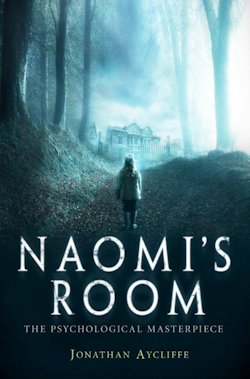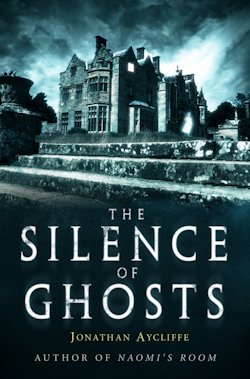When Dominic Lancaster goes to war as a gunner about the HMS Hotspur, it’s a chance for him to show his family—who have dismissed him to date as a dreadful disappointment—that he may well be worthy of their legacy: a successful port importing business which Dominic stands to inherit after his father’s passing.
Instead, he becomes one of the first casualties of the conflict when he loses his leg at the Battle of Narvik. His subsequent recovery is tough; tough enough that Dominic’s parents dispatch him to Hallinhag House in the little village of Ullswater… ostensibly to give him a peaceful place to recuperate, but in truth, as Dominic determines, so that he isn’t underfoot when the Blitz begins.
He’s not alone in the Lancasters’ holiday home. For one thing, his ten-year-old sister Octavia is with him. Profoundly deaf for the larger part of her little life, she’s another distraction to be disdained at every stage by a pair of appalling parents, but somehow Hallinhag House seems to be improving her hearing. The sounds she starts to hear, however, are of nothing natural.
The house seems more than quiet. Downcast. Full of memories. No, that’s wrong. It’s full of forgettings. All the years that have gone, and I know so little of the men and women who spent time here, even though they were my ancestors. When I have been here before, the house has seemed filled with light; but that was always the summer and it is winter now. Perhaps the house has picked up on my mood, sensed by new vulnerability, and knows how useless I am. Can houses sense what we feel? Do they feed off all the emotions that have been experienced between their walls? Octavia says there are ghosts here. I admonish her, and I watch her when she comes to this room. She might be serious, but I doubt it. She has no names for these ghosts. Maybe they are silent, like her.
Initially, Dominic has little time for such frivolousness, because he too has his sights set on getting better; on learning to walk once more, first and foremost. Assisting him in this is the district nurse, Rose, a beautiful young woman who treats him with care and kindness. It isn’t long before Dominic falls for her, though there will be no flings in the future he foresees:
This is, God knows, as lonely a place as I have known. I have Octavia for company, of course, but she is ten years old, and I often want to speak with an adult, a man or even a woman. Of course, with a woman I can never expect any more than intelligent conversation. All I can hope for it to have some women for my friends. The loss of my leg has diminished me so completely, I scarcely think of myself as a man now, a proper man, well formed, active, not the partial thing I have become.
To make matters worse, Dominic is haunted. Not by memories of the war—so far removed from it is he that the war hardly figures into his thinking—but by dreams. Deeply creepy dreams in which he repeatedly sees “shapes moving in semi-darkness, shapes that were neither human nor something else, shapes with veils across their eyes, dressed in black or grey, swaying, watching me from a short distance and always coming closer.” Harrowing as they are, he can hardly conceive that his dreams could be real, or that the whispering children Octavia hears have called Hallinhag House their own home for hundreds of years.

It’s all, if I’m honest, abominably ominous, and the atmosphere comes complete with a sense of threat so desperate that when we catch our first glimpse of the ghosts, it’s a relief, really: an outlet, finally, for our increasing fears. Few authors can inspire these feelings in readers as easily as Jonathan Aycliffe, the author of eight other full-length ghost stories—most notably Naomi’s Room, which is being reissued to coincide with the release of The Silence of Ghosts: a fine, if ill-fitting title in light of the clamour of the titular spirits.
Aycliffe has the fiction of fear down to a fine art, to be frank, and his latest is bolstered by a tremendous setting in terms of place and time too. Hallinhag House is an isolated old building set apart from a close-knit community that the cast-off Lancasters have no choice but to call upon when events take a turn for the terrible, and the fact that the war is going on all the while, albeit in the background, adds a sense of insignificance to their troubles. With bombs being dropped daily and the awful cost of the ongoing conflict felt far and wide, why should anyone give a fig about a two newcomers tormented by night terrors?
That we do is a testament to the author’s unsentimental yet sympathetic rendering of The Silence of Ghosts’ central characters, and Aycliffe’s development of Dominic, Rose and Octavia is deft, particularly considering the book’s brevity. It has a beginning and an ending, but no meandering middle section to drag the narrative down. Alas, its limited length leads to certain less welcome consequences as well. Dominic’s inevitable romance with Rose feels rather rushed, and an array of supporting characters in both London and the Lakes lead to Aycliffe’s latest seeming somewhat overstuffed.
I would, too, question the utility of the framing tale with which Aycliffe bookends Dominic’s diaries. Precious little is achieved in these that could not have come to pass, perhaps to greater impact, over the course of the core story; in fact its primary purpose is to pointlessly preempt the unfortunate fate of Octavia.
It may be no Naomi’s Room, but by and large, The Silence of Ghosts is a bloody good ghost story, cannily crafted in the classical fashion. Jonathan Aycliffe has been called a modern day M. R. James, and if that’s the case, then this book about life after death and the abuse of youth is very likely his Lost Hearts.
The Silence of Ghosts is available now in the UK from Corsair.
Niall Alexander is an extra-curricular English teacher who reads and writes about all things weird and wonderful for The Speculative Scotsman, Strange Horizons, and Tor.com. He’s been known to tweet, twoo.










